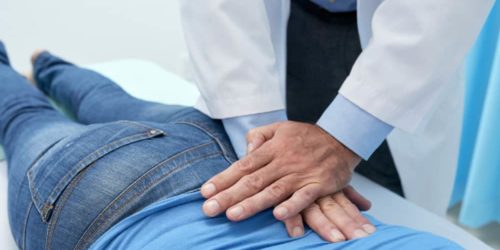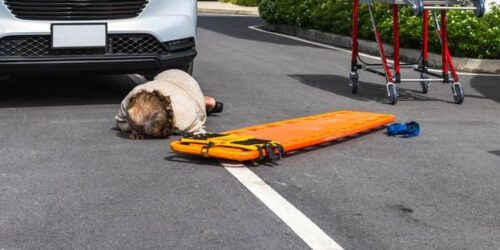Unfortunately, car accidents are part of living in a world with vehicles. Sometimes following a car accident, you can tell immediately if you have been injured, but often injuries can take several days to appear. Car accidents are scary and leave you unable to always think straight. Because of that, we are happy to provide this car accident checklist of steps to take following a car accident. Having this resource can help make the aftermath of a car accident easier to navigate.
10 Steps To Take After A Car Accident
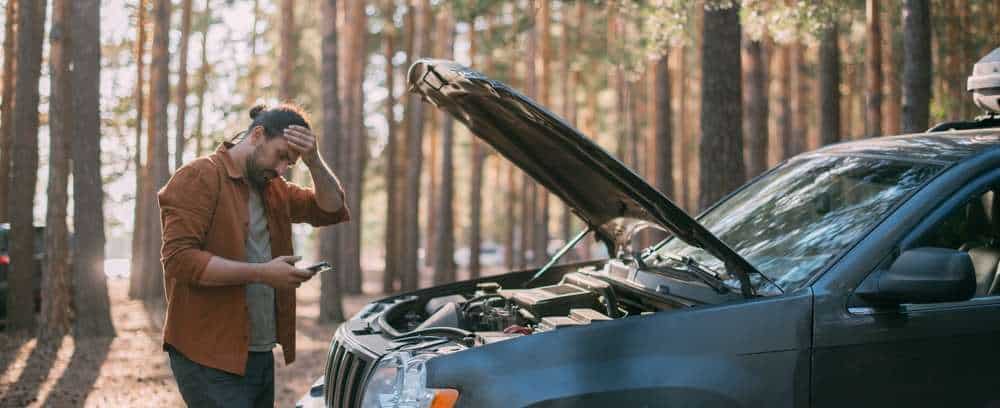
The aftermath of a car accident can be very disorienting. The following days and weeks can be even more so, especially dealing with insurance and doctors and trying to process the accident as well. The following is an excellent checklist of steps to take following an accident. We put this together to help make this process easier and less stressful for you.
- Remain calm and check for injuries
- Find a safe space and seek help
- Document evidence and the scene
- Record the facts of the accident
- Exchange details with the other party
- Get checked by a car accident doctor
- Take time to rest after the accident
- Contact your car insurance company
- Contact a lawyer when needed
- Follow through with chiropractor appointment
Step 1: Remain Calm And Check Yourself & Your Passengers For Injuries
Following a car accident, it is paramount to remain calm. If you remain calm, you are less likely to injure yourself and help those with you. Assess yourself and your passengers for injuries. If you have a first aid kit in the car, you should try to attend to any injuries you are able to. Remember to take a deep breath, as this can help bring your adrenaline down and allow you to manage the situation better.
Step 2: Find A Safe Space After The Accident & Seek Help
Once you get your bearings following an accident, try and see where you are on the road. If you are able to move the vehicle off to the side of the road. This prevents blocking traffic but also reduces the risk of more injuries. If you cannot move the cars off the road, move off the road. Staying out of the way while waiting for help is the safest thing to do.
Once you are safe, call 911 immediately. Calling the police will provide a record of the accident and will help give context and verification on an insurance claim. The police will also help direct traffic around the accident. If there are any injuries, it is a good idea to allow the paramedics to assess and treat you.
Step 3: Document Evidence at the Scene of a Car Accident
In today’s world, almost everyone has a smartphone. Because of that, you have a camera with you after a car accident. Take as many photos as possible. Note all damage, any environmental aspects that may have contributed to the accident, and more. Ask for any witnesses to provide a statement and contact information.
Document any and all injuries at the scene as well. Take photos and write down details. Also, note any minor aches or pains, as these could worsen in the following hours or days, and if you have an initial notation of them, it will improve the chances of insurance covering treatment.
Step 4: Record The Facts Of The Accident
Having the facts of the accident will help when filing insurance claims, police reports, and recounting details if any legal proceedings take place. Some of the details that are important are the date, time, place, and description of how the accident happened.
Note down basic descriptors of the other drivers and passengers as well as any injuries to yourself or the other parties. All of this information will be crucial if there are any contradictions from other parties or if you require legal assistance.
Step 5: Exchange Details With The Other Party
Exchanging details with the other driver is essential. It will allow you to pursue any legal action as well as allow your insurance company to communicate with theirs. Make sure you don’t express any frustration or apologies to the other driver. Ask the other driver for their car insurance and ID cards and copy all the information down. Make sure you don’t speak to the other driver’s car insurance company if they call them at the scene.
Make sure you get the following from the other driver:
- Name of the driver
- Insurance company and policy number
- Driver’s license number
- Phone number of the driver
- License plate number
- Make, model, and color of the other vehicle.
Step 6: Get Checked By A Car Accident Doctor
You should seek medical attention as soon as possible following a car accident. If paramedics are on the scene, they can help determine if emergency treatment is required. Emergency treatment should be sought if you’ve hit your head, have severe back pain or neck pain, obvious fractures, chest pain, or active bleeding.
If you are experiencing mild soreness or no symptoms at all, it may be okay to call a car accident doctor, like ProCare, to schedule an evaluation to make sure you don’t have any hidden injuries.
Step 7: Take The Time To Rest After The Accident
Once you have spoken with the police and gathered all the pertinent information, you should head home for some rest. Taking the time to rest will help your mind calm down and lessen your anxiety. Once you have filed all the information with insurance, you can’t do anything until they make a decision.
Step 8: Contact Your Car’s Insurance Company
You should always notify your car insurance company following a car accident. Provide them with all the details you have from the scene. This will allow them to open a case and begin the process of filing the claim.
Step 9: Contact A Lawyer When Needed
If you were injured in a car accident, legal action may be needed. It’s important to contact a lawyer following an accident to get advice on what papers you should file and how to handle any fallout.
Step 10: Follow Through with Chiropractic Care Appointments
It is important to have an evaluation following a car accident. They can help assess for any joints or vertebrae out of alignment and provide corrective adjustments. Whiplash is a common injury following a car accident, and chiropractors can help with pain and discomfort as a result of this injury.
After the initial assessment, you should continue to see your car accident chiropractor so they can assist with any lingering pain and discomfort. If you go once and never again, you may have injuries that do not heal well as they haven’t been monitored.
What Not To Do After A Car Accident
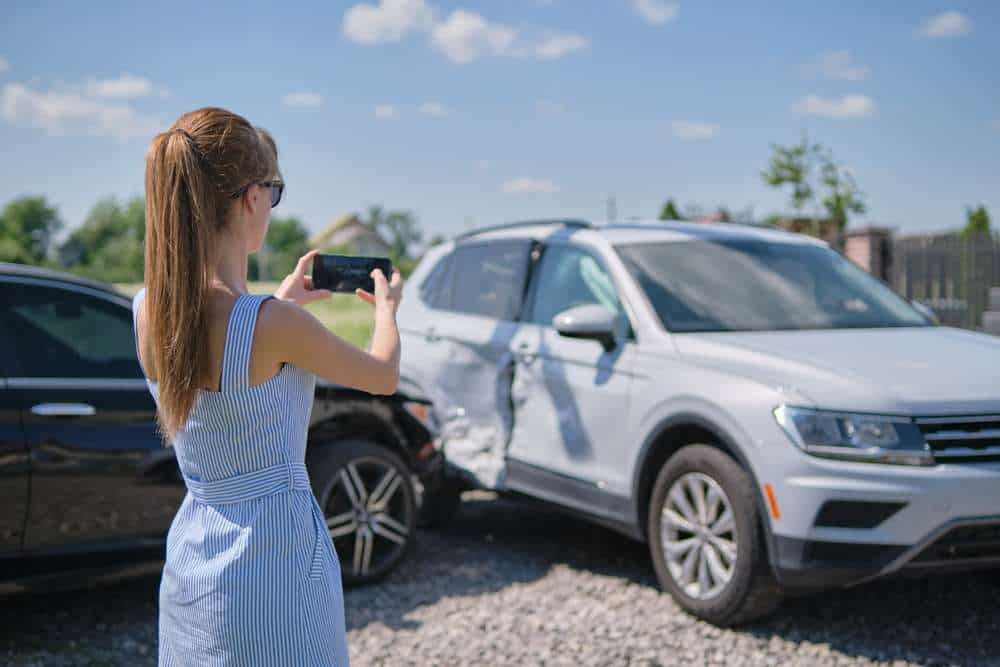
There are several important things you should never do following a car accident. The aftermath of an accident is chaotic, but it is imperative to try and avoid these things. Following an accident, you want to limit any possibility of opening yourself up to legal action. You also want to limit the risk for drivers around you as well as avoid injuring yourself further.
- Don’t leave the scene of the accident
- Don’t block traffic if it is safe to move to the side
- Don’t forget to call 911
- Don’t neglect to obtain the other party’s information
- Don’t leave the scene without documenting with photos
- Don’t underestimate how badly you have been hurt
- Don’t admit fault
- Don’t speak with the other party without a lawyer
Things To Keep In Your Car In Case Of An Emergency
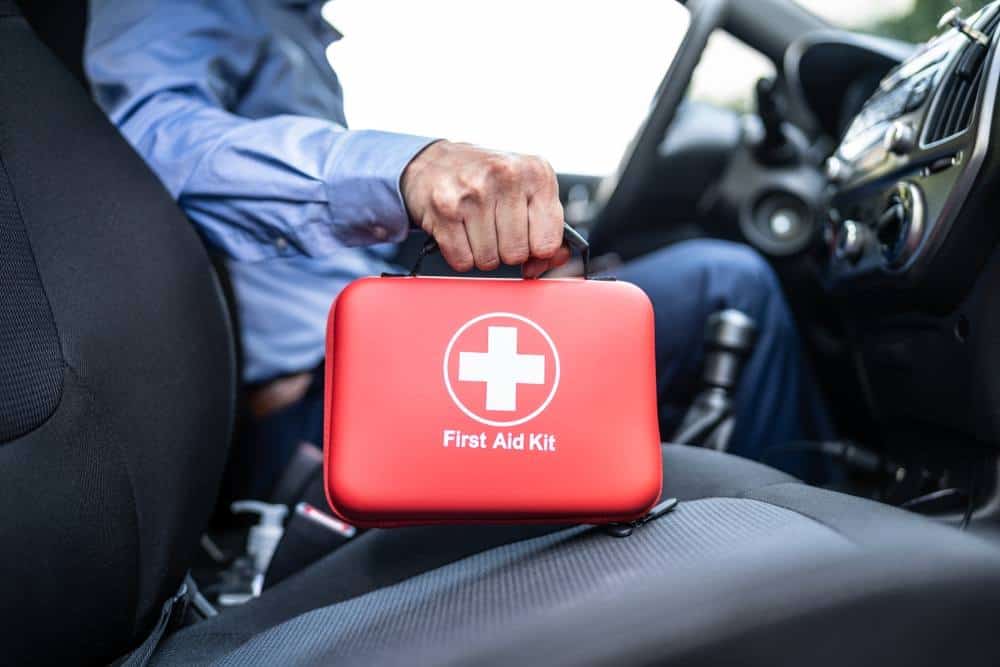
Every car should have a small emergency kit to help in case of an emergency. These kits can have supplies for car accidents if you get stranded, and more.
Medical Supplies
- Gauze
- Tape
- Bandages
- Antibiotic ointment
- Pain relievers and fever reducers
- Gloves
- Scissors
- Instant ice pack
- Thermometer
- Tweezers
- Thermo blanket
Survival Supplies
- Compass
- Flashlight and spare batteries
- Drinking water
- Fire extinguisher
- Rope
- Duct tape
- Blankets and towels
- Non-perishable foods – nuts, granolas, hard candy
Auto Supplies
- Spare tire and tools to change it
- Solar charger for electronics
- Reflective vest
- Reflective triangle
- Flares
- Jumper cables
- Cannister of sand
- Spare oil and antifreeze
Get Treatment For Your Car Accident Injuries At Pro-Care Medical Center
If you have been in a car accident, our Pro-Care team is ready to treat you and help you through the process. Pro-Care is an experienced clinic of car accident doctors, primary care physicians, neurologists, orthopedists, chiropractors, and more.
Our goal at Pro-Care is a comprehensive treatment. We want to address your injuries from every angle to ensure thorough healing and a return to your everyday life. Our car accident doctors are highly experienced and will be a great resource for your current injuries as well as help prevent future injuries.
